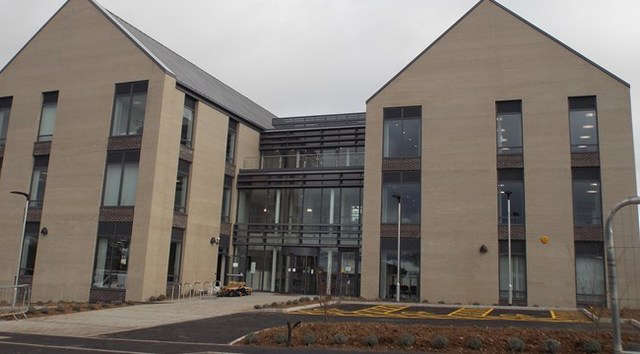
World-leading academics from the University of Exeter have been recognised as being amongst the most influential researchers in their field, according to a prestigious ranking.
Fifteen scientists from Exeter, and a further four who are affiliated to the University, feature in an authoritative new list of the most highly cited researchers worldwide, produced by Clarivate.
Now in its 11th year, the report recognises researchers who demonstrated significant influence in their chosen field or fields through the publication of multiple highly cited papers during the last decade, based on the Web of Science citation index.
The Highly Cited Researchers 2024 list uses both quantitative and qualitative analysis to identify individuals from across the globe who have demonstrated significant and broad influence in their chosen field or fields of research.
Exeter’s cohort, which has increased from last year, includes some of world’s leading experts on the environment, health, and microplastics pollution.
They include Professor Clive Ballard, Professor Katrina Brown, Professor Peter Cox, Professor Tim Frayling, Professor Kevin Gaston, Professor Sarah Gurr, Professor James Screen and Dr Kees Jan van Groenigen, who all feature in the Cross-Field category of the awards.
Professor Tamara Galloway features in the Environment & Ecology category, while Professor Pierre Friedlingstein, Professor Tim Lenton and Professor Stephen Sitch are featured in the Geosciences category.
Professor Jack Bowden, Professor Ruth Garside and Dr Benedict Wheeler are also ranked in the Social Sciences category.
Professor Herman Aguinis, Professor Penelope Lindeque, Professor Matthew White and Professor Adam Scaife are also included in the rankings, but under their affiliation with other organisations.
Professor Lisa Roberts, President and Vice-Chancellor of the University of Exeter said: “We are proud and delighted that Exeter once again has so many of our world-leading and influential researchers recognised in this report. It is a testament to the global importance, quality and impact of the work of our pioneering research community. Now more than ever, we need to make real breakthroughs to address many of the most pressing and urgent issues affecting our world, and the work of our researchers is leading the way towards a greener, healthier and fairer future for everyone.”

 Clyst Honiton Neighbourhood Plan Officially Adopted by East Devon District Council
Clyst Honiton Neighbourhood Plan Officially Adopted by East Devon District Council
 Residents Back Appeal After Crews Struggle to Access Roads
Residents Back Appeal After Crews Struggle to Access Roads
 Movie star Easter egg-stravaganza this spring at the University of Exeter
Movie star Easter egg-stravaganza this spring at the University of Exeter
 RAF Exeter Town Show: A Weekend of Discovery and Excitement
RAF Exeter Town Show: A Weekend of Discovery and Excitement
 Police are seeking the public’s help to find a wanted Exeter man
Police are seeking the public’s help to find a wanted Exeter man
 East Devon environment budget cut by £50k as demands get tougher
East Devon environment budget cut by £50k as demands get tougher
 Online petition system set to launch in East Devon
Online petition system set to launch in East Devon
 New Red Coat tours revealed as part of summer programme
New Red Coat tours revealed as part of summer programme












